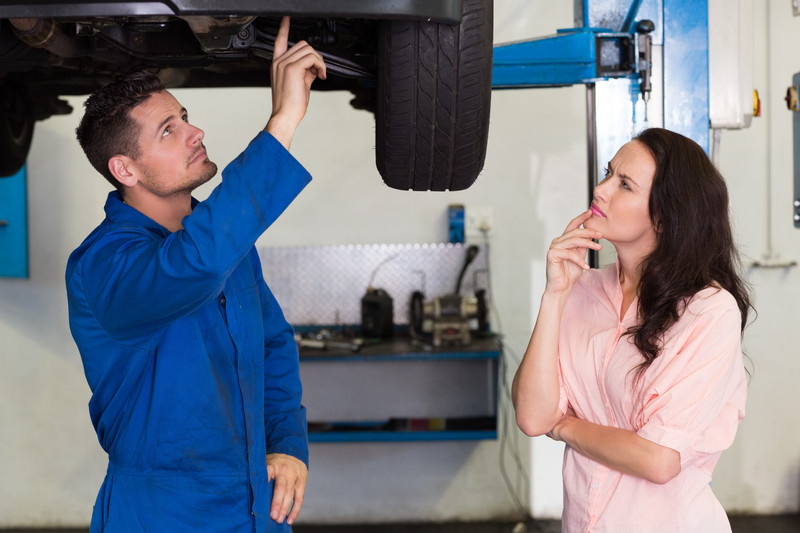Japan is, by no doubt, a giant when it comes to the automobile industry ratings. The country is home to
global automakers such as Honda, Toyota, Mazda, and Subaru, to name a few. To make it evident
enough that Japan is a worldwide beast in the automobile industry, there is no place to set foot on earth
and fail to sport a Japanese-made vehicle. That clearly shows and tells how much reputation and love
Japanese-made cars have got.
That brings us to the topic above, which this article will answer in detail. This publication talks about the
wrong things you might have heard or know concerning Japanese-made cars. Besides that, the article
pushes for the need to purchase an extended car warranty once you think of owning a Japanese vehicle
or holding one now. Extended warranties are excellent when looking for the best way to deal with
unforeseen breakdowns that end up costly. Given that the factory warranty that comes with any brand-
new car doesn’t last long, the need to purchase an extended warranty is inevitable.
Now check out the five things you knew wrong about Japanese cars.
Poor designs and bad exterior looks
This is arguably the main downside of Japanese cars that many car enthusiasts have to concur with. The
engineers, or rather the designers of most Japanese automobile companies, do not put in that extra
effort when designing these models. The poor workmanship on the exterior body is one reason why
Japanese cars perform poorly when it comes to the exterior look ranking. You will notice that the
designs and styles incorporated are nothing unique or stylish from the front to the rear bumper.
Instead, the vehicle is just made plain with no additional features that would make them more
appealing. Therefore, when Japanese cars are placed in one room with other models from the west or
elsewhere, they tend to receive less attraction just because of their looks. That paints out the idea that,
indeed, Japanese cars aren’t that formidable when it comes to exterior looks and craftsmanship.
Japanese cars are most susceptible to rust.
This is another wrong thing that most cars made in Japan fail terribly. Rust, a severe threat to the well-
being and health of a car, is more likely to attack Japanese cars than cars from different places. Even
though Japanese cars have been described as the king of reliability, rust is where the line is drawn. The
body panel material used for most Japanese cars isn’t that durable and tough enough to endure harsh
weather conditions and perhaps withstand rust-causing agents.
That is one reason owners of most Japanese cars are advised to seek help from car experts and have
their car rust proofed. Otherwise, the vehicle’s core metallic parts could be "eaten" off by rust and
become problematic.
Minimal interior space
Space is among the core features many car lovers always look for when shopping for a brand-new or
used vehicle. That includes bothering the interior cabin space and the cargo room as well.
Unfortunately, Japanese cars have been reported to offer minimal cabin space, making them garner the nickname “econoboxes”. The reduced interior space makes it uncomfortable for a car owner with a
huge family size since a vast number mainly needs area.
Rattling interior
There is nothing uncomfortable as a rattling interior that makes noise every time one hits the road.
Most Japanese cars are reported to make lots of noise in the interior when driving on bumpy roads or
rough terrain. That makes the drive unpleasant since the noise disrupts the peace of mind and calmness.
Engine-related problems from engine leaks
Engine leaks are common in most Japanese cars and are one of the causes of engine-related faults. The
engine seals under the engine of most Japanese cars are made of light rubber that quickly gets melted
off due to engine heat. Once the seals are off, that calls for leaks in the engine components, most of the
oil. Oil is essential in a car engine and once its quantity is less than average, then expect engine
overheating and other problems that may worsen as time goes on.
Conclusion.
Japanese cars are the masters when talking about reliability. Cars from huge brands such as Honda and
Toyota have proven to be the most reliable you can ever find, which is absolutely a fact. However, there
will never miss setbacks in whatever car, no matter how best it is. The five wrong things about Japanese
cars stated above are what you have to expect in case you are planning on shopping for any Japanese.
To guarantee protection from all unforeseen breakdowns that could end up costly, you are advised to
secure an extended warranty. A-protect Warranty Corporation is the perfect third-party dealer you need
to check out. You can get us a free quote via email at info@a-protectwarranty.com and secure your
Japanese-made car.



